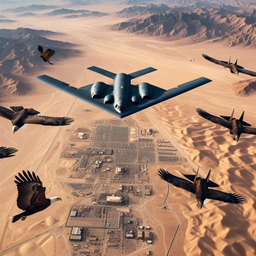By Ron Raskin

On June 21, 2025, the U.S. sent its Air Force to finish the job and destroy what remained of Iran’s nuclear program. This attack was one of the clearest signals of a shift in America’s global strategy. Until recently, America saw itself as the world’s policeman. But now, things are changing in Washington. The U.S. no longer has the interest or resources to keep playing that role, and stepping back from it is actually one of the core ideas behind the MAGA vision.
Some see this shift as isolationism—meaning the U.S. should stay out of global conflicts completely. But Trump’s view is a bit different. In his eyes, America should act like a powerful lord, and other countries that want to be on its side should act like loyal vassals.
In this setup, the U.S. doesn’t need to handle everything directly. Instead, it expects its allies to do most of the work for its benefit. If they do well and stay loyal, America helps them out and rewards them to keep them strong—and to show who’s in charge.
That’s exactly what happened on June 21: the “lord” let its “vassal” do most of the fighting, then stepped in to finish the job in a way only a superpower can. Same idea on May 6, when the U.S. agreed to a ceasefire with the Houthis, even while they were still firing missiles at Israel. And again on February 28, when Zelensky seemed to get a message that being aligned with the U.S. comes with rules—and consequences. I’d guess that’s also what Trump offered Putin: join me, and you’ll be rewarded.
Some people describe Trump’s foreign policy as “transactional.” And that’s true—but it’s not just simple give-and-take. It’s more like a complex system, similar to how things worked in medieval times between powerful lords and their loyal vassals.
Is this good for the world? Well, it’s not as good and noble as the older system, where America tried to stand for values and defend them. But it’s still better than US complete isolationism, and it’s very flexible and practical. Any country, no matter its values, can become an “American friend” if it plays along serves U.S. interests.
It’s also better than the old, soft, outdated approach we’ve seen from leaders like Biden and Macron—the kind of thinking that says, “They are still kids. Just leave them alone, they’ll grow up.” The problem is, countries like Iran haven’t “grown up”—they’ve become more dangerous, more calculated. These aren’t misbehaving kids anymore; they’re cold-blooded criminal regimes fueling chaos and anarchy, where the only rule is that the strong take whatever they want.
But there’s a worrying part to all this. When relationships are based only on interests and not shared values, trust fades away. From that point on, every country has to watch its back. Allies can quickly become rivals, and no one can fully trust anyone—because in a world driven by interests, true friendship doesn’t exist.
We’re living in a time of deep uncertainty and growing chaos. In moments like these, both people and nations start looking for a “strong hand” to restore some sense of order. And that, for better or worse, seems to be what Trump’s approach is all about—with all its strengths and weaknesses.
To paraphrase Deng Xiaoping: It doesn’t matter what the method is, as long as it brings stability to the world.
Will this approach actually bring peace and order?
We’ll see… we’ll see.

